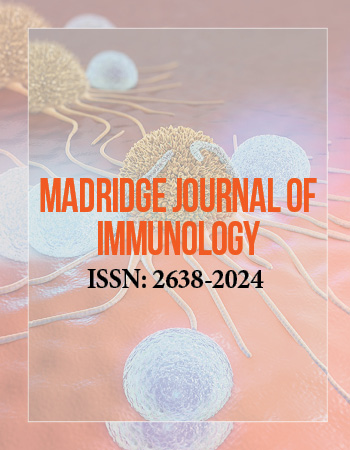International Conference on Immunology and Immunotechnology
November 1-3, 2017 Barcelona, Spain
Cytokine Balance to Plasmodium Vivax Infection in a Gold-Mining Area from Amazon Region
Federal Fluminense University, Brazil
Background: Malaria is the most devastating protozoan disease afflicting humans. The most widespread human malaria parasite, causes 130–390 million clinical episodes. Although the pathophysiology of vivax malaria remains poorly understood. The cytokines was reported to be of importance in human malaria include TNF-α, IL-6 and IL-10, but the mechanisms by which humans regulate pro- and anti-inflammatory responses on exposure to different malaria parasites remains unclear.
Materials and Methods: We aimed to investigate participation of the cytokines in the immune response to P. vivax infection in a gold-mining area. The serum cytokine levels was assumed from 50 malaria patients and 79 healthy individuals of Itaituba, municipality situated on southwest of Para state. The plasmatic cytokines IL-2, IL-4 IL-6, IL-10, TNF-α and IFN-γ were quantified by BD Human Th1/Th2 cytokine Kit II and all purchased from BD Biosciences Pharmingen. The statistical analyses were carried out using the Graph-Pad Prism software, version 6.0 and the existence of association was determined by Mann-Whitney test, with level of significance of 0.05.
Results: Data analysis indicated significant increase in the TNF-α, INF-γ, IL-6 and IL-10 plasmatic levels (3,54 pg/mL ± 3,99; 13,80 pg/mL ± 41,52; 217,62 pg/mL ± 534,91; 1.030,44 pg/mL ± 2.290,77, respectively) in malaria group as compared with endemic control group (1,86 pg/mL ± 2,67; 4,48 pg/mL ± 17,93; 9,67 pg/mL ± 16,69; 2,22 pg/mL ± 5,20, respectively); no significant differences were detected in the IL-2 and IL-4 plasmatic levels between the groups.
Conclusions: Cytokine responses reflect different host strategies for controlling infection in different endemic areas. Our findings showed significant differences in TNF-α, INF-γ, IL-6 and IL-10 levels produced in association with parasite burden, which itself is related to the clinical course. However, the cytokine balance needs to be evaluating in different areas and population.
Keywords: Malaria, P. vivax, Cytokine, Immune response.
Biography:
Ricardo Luiz Dantas Machado, Ph. D. is a Full Researcher at Malaria Immunogenetics Laboratory of the Evandro Chagas Institute, Brazilian Ministry of Health. He received his degree in Pharmacisty from Universidade Federal Fluminense, Niteroi, Brazil in 1984 and his Ph.D. in Parasitology from Universidade Federal do Para, Belem, Brazil in 2001. He is an Associate Editor of the BMC Infectious Diseases, and serves on the editorial board of ISRN-AIDS and World Journal of Clinical Infectious Diseases. His main fields of research are coccidian diagnosis, molecular epidemiology and host-parasite relationship. He has published several scientific peer-reviewed papers, reviews and book chapters.


